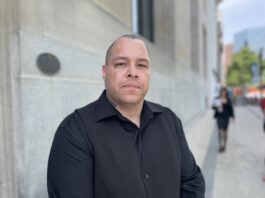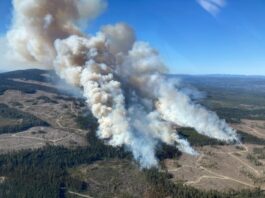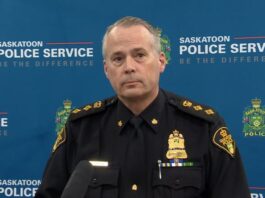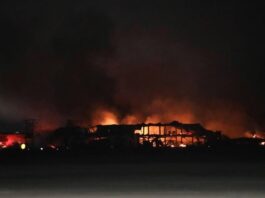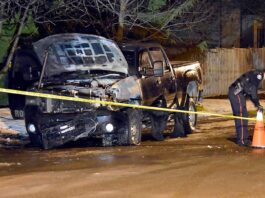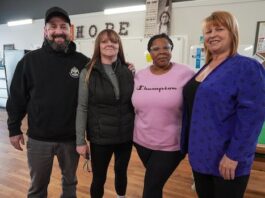
Most Canadians can only dream of a day when they will feel confident that most of the people they encounter are vaccinated for COVID-19.
But whether it’s a neighbour over the fence or a stranger in the local general store, people on Denman Island, B.C., will know what that’s like as soon as their doses kick in.
The island, which has a population of 1,200, is one of 28 communities on or near Vancouver Island where all adults have been offered a first dose of COVID-19 vaccine.
The campaign’s goal was to vaccinate every adult they can in the community over three days and create herd immunity for the island. This first dose won’t guarantee immunity, but it is a step in that direction.
Denman Island’s vaccination blitz started early last week with a handoff in a parking lot at the Buckley Bay Ferry Terminal south of Courtenay, B.C.

A van pulled up with precious cargo tucked away in a standard blue and white camping cooler. In it were hundreds of doses of the Pfizer vaccine, which were carefully monitored every step of the way.
A team of nurses escorted the cooler onto a ferry to the small island, which is tucked along the east coast of Vancouver Island between Nanaimo and Courtenay. When the trip ended, the team got to work at a local community hall between Wednesday and Friday last week.
Chairs were spread out on the hardwood floor, signs were erected and tables set up to hold neat rows of syringes, disinfectant and other supplies.
Nurse Arielle Agar was one of the few health-care workers delivering shots who actually lives on the island.
“It feels really really great knowing that like my neighbours who are always there to support me, that I can be part of protecting them,” she said.
‘I want protection’
One of the first in line for vaccination was Brian Holt. A friend of his died recently from COVID-19.

“That’s when it hit home that this was real,” he said. “I knew it was there but I didn’t take it seriously, seriously enough.”
Local potter Vasilia Wees was there for the shot, hoping to help safeguard her family.
“I want protection,” she said. “I work in the studio with my father in law who is 82 and I’ve had to make some changes.”
Rick Paisley, a retired nurse who lives on the island, was greeted by name most of the people lining up for their turn for an injection.
He says there are a few islanders who oppose the vaccine, but not many.
“The proportion of anti-vaxxers are very small compared to the people who are following the guidelines,” he said.
‘Whole of community’ approach
Data is still being gathered on the effectiveness of the whole community approach, but many interviewed on Denman Island say it’s increasing peace of mind; something in short supply in other places across the country.
Island Health, which is running the clinics isn’t releasing exact numbers on how many doses are administered. They call it the “whole of community” approach to vaccination, saying it makes sense for isolated regions.
A spokesperson said as of Friday, the Vancouver Island Health district has administered 286,414 first doses, representing 38.8 per cent of its population overall.
Down the road from the community hall, Patricia and Selwyn Jones walked along a row of grape vines just beginning to bud. They run an organic winery and tasting room.

The vaccination blitz gives them hope, but they’re unsure when people will feel safe from the risks of COVID-19.
“I think it will take a lot longer than we think. I think it will be with us for quite a few years to come,” said Selwyn.
Patricia is more optimistic.
“I think it will improve things, make it better, people will be less anxious,” she said.



